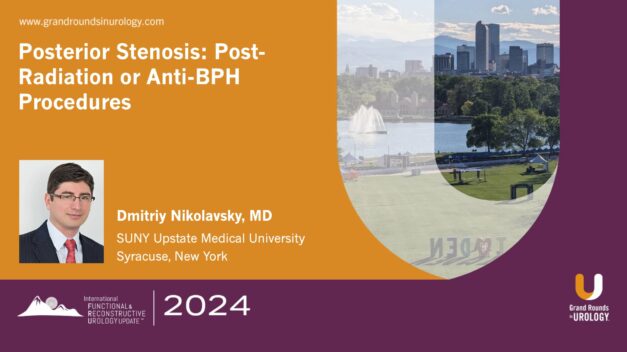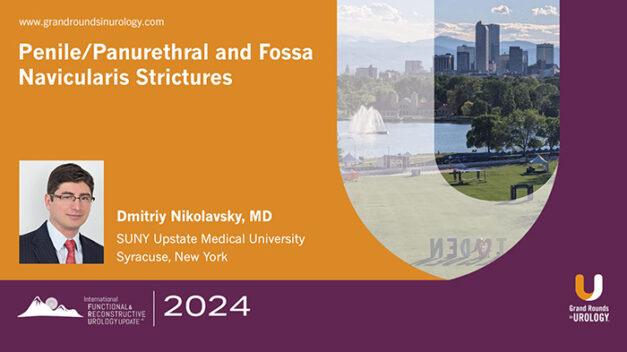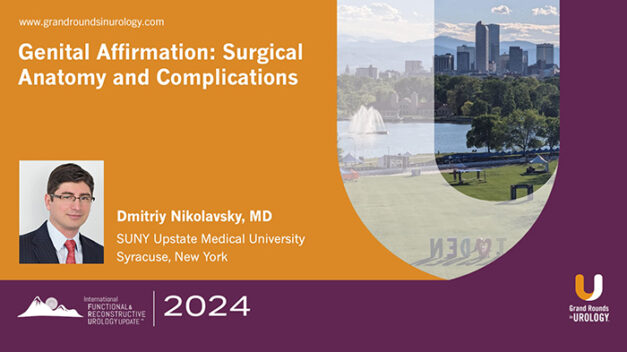Posterior Stenosis – Post-Radiation or Anti-BPH Procedures
Dmitriy Nikolavsky, MD, discusses urethral stricture and stenosis management following radiation and anti-BPH procedures, highlighting surgical challenges, outcomes, and the evolution of treatment strategies.
In this 11-minute presentation, Nikolavsky explores the differences in stricture occurrence across treatment types. Surgical approaches are tailored based on oncologic status, patient preference, and local tissue health. Buccal mucosal grafts for dorsal urethroplasty are highlighted as a promising technique. Notably, dorsal-only urethroplasty has demonstrated comparable success to EPA with a lower incidence of postoperative incontinence.
Dr. Nikolavsky emphasizes the difficulties of traditional excision procedures in radiated fields, proposing dorsal-only urethroplasty as a better alternative due to its minimal disruption of adjacent structures. He shares evidence from multi-institutional studies that support its efficacy.
With a call to challenge established dogmas, Nikolavsky underscores the need to refine guidelines and expand the use of innovative approaches like dorsal urethroplasty to improve patient outcomes.
Read More


